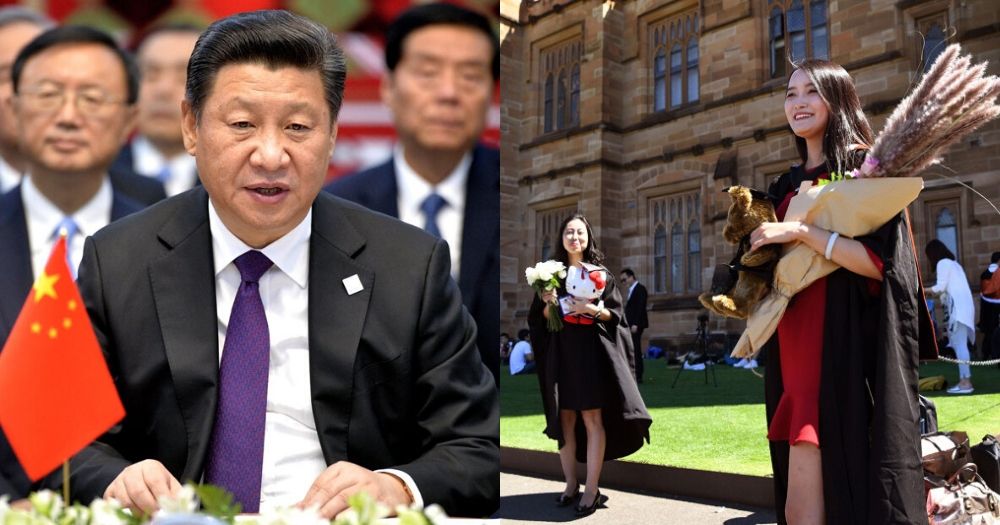China's Ministry of Education issued a travel warning on Tuesday, urging students to think carefully before going to Australia for their studies.
Warned Chinese students to "think carefully" before choosing Australia for studies
The ministry cited a number of racial incidents targeting Asians in Australia in the midst of the Covid-19 pandemic, reported Chinese state media CGTN.
The ministry said that major universities in Australia are scheduled to open around July, warning Chinese students that the spread of the virus has not been effectively contained globally yet, and that international travel and the reopening of schools could pose a risk to their safety.
A survey conducted by the Per Capita think tank had documented 386 racist incidents, ranging from abuse to physical intimidation and spitting, according to Sydney Morning Herald.
In April, a pair of Singaporean and Malaysian students were attacked in Melbourne, in what was believed to be a racially-motivated assault.
Chinese students made up roughly 38 per cent of all international students in Australia in 2018.
Australian universities could face a shortfall of more than US$12 billion (S$16.7 billion) in Chinese student fees over two years if China were to stick to its advisory, leaving Australia out of its itinerary list until 2021.
After iron ore and coal, international education is Australia’s third largest export.
More than a third of the US$21 billion (S$29.3 billion) in revenue, counting student expenditure as well as fees, was coming from China, according to 7News Australia.
A nation dependent on China
Bloomberg has described Australia as the "most China-dependent developed nation", indicating that any breakdown in relations between the countries could severely affect the Australian economy.
According to an ABC News report from 2019, a third of Australia's exports are shipped to China.
In 2017-2018, China was also Australia's largest trading partner contributing more imports and exports than Australia's second and third largest trading partners combined (Japan and the United States).
In the same period, Chinese tourism to Australia was worth more than a quarter of Australia's entire tourism market.
The KPMG and University of Sydney study found new Chinese investment in Australia had plunged nearly 60 per cent to its lowest since 2007, reported The Guardian.
In May, China banned the import of Australian beef amidst strained relations as Australian Prime Minister Scott Morrison was set to push for a probe into the virus's origins at the World Health Assembly.
China's ambassador to Australia Cheng Jingye said in April that Morrison's push for the inquiry was "dangerous", according to The Age.
Cheng warned that Chinese consumers, fuelled by nationalistic pride, could react with a boycott of Australian goods.
Top image via Getty Images
If you like what you read, follow us on Facebook, Instagram, Twitter and Telegram to get the latest updates.
